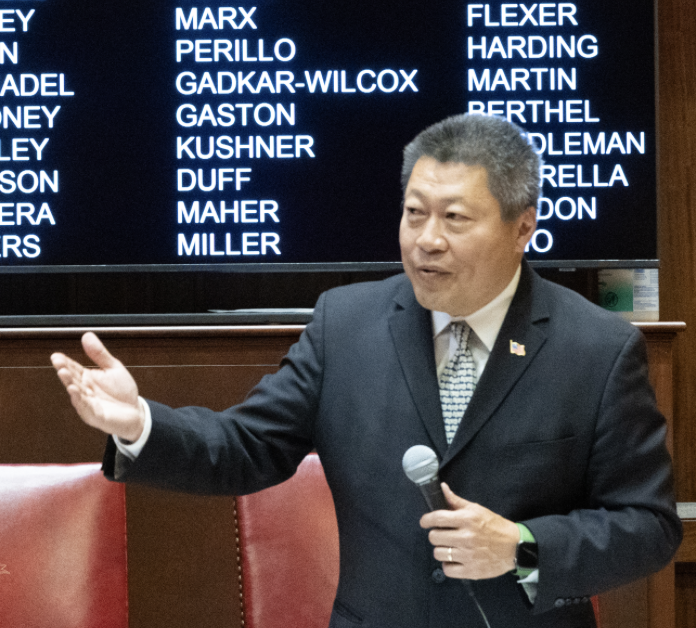
HARTFORD, CT — State Senator Tony Hwang (R-Fairfield) tonight cast a decisive “no” vote on Emergency Certified House Bill 7287, the biennial state budget, calling it “unsustainable, overleveraged, and a troubling step backward for Connecticut’s fiscal health.”
“This budget sets an illusion of stability while quietly breaking down the very guardrails that protect taxpayers,” said Senator Hwang. “With no more federal ARPA funds to cover ongoing expenses, it’s Connecticut taxpayers who are left holding the bag.”
Key Fiscal Concerns with the Budget:
- $635 million in new taxes on Connecticut residents over two years
- $2.5 billion in new spending that far exceeds responsible growth
- $360 million in new business taxes that will stifle job growth
- Weakening of fiscal guardrails through budgetary gimmicks and unsustainable endowments
“Where is the money going to come from when the surplus and rainy day funds are gone?” Hwang asked. “This budget doesn’t answer that question. It’s another example of backroom budgeting that leaves Connecticut families, hospitals, and businesses to pick up the pieces.”
Lack of Transparency and Due Process
Senator Hwang also criticized the process by which the budget was crafted via emergency certification and closed-door negotiations that excluded many voices and viewpoints.
“This isn’t democracy. It’s government by one-party decree,” said Hwang. “Transparency and due process are essential, not optional. Sadly, this budget ignores those fundamental principles.”
Impact on Hospitals and Medical Healthcare
While Hwang praised the budget’s investments in special education, education cost sharing (ECS) funding, and early childhood programs, all longstanding priorities he has championed - he still could not support a budget that undermines healthcare access and local hospitals.
Dangerous Expansion of Union Prevailing Wage
Hwang raised alarms about a major policy change quietly buried in the budget: the expansion of prevailing wage requirements to off-site workers for the first time. “This is government overreach at its worst,” Hwang said. “It will increase construction costs, stifle competition, and burden small businesses—and it was done without public debate or scrutiny.”
Retired Teachers’ Health Insurance
Another key concern is the budget’s reduction in the state’s share of retired teachers’ health insurance, shifting more of the burden onto retirees themselves. “We have a moral obligation to support our retired teachers,” Hwang said. “This budget breaks that promise to those who gave decades of service to our children and our state.”
A Call for Bipartisan Governance
Hwang pointed to the 2017 bipartisan budget deal, forged in an evenly divided Senate, as a model for true, balanced governance.
“That bipartisan budget brought stability and accountability to our state’s finances,” Hwang said. “When both parties are at the table, you get real accountability, balanced priorities, and trust. That’s what’s missing here. I voted no today because this budget puts short-term promises ahead of long-term fiscal health, erodes transparency, and burdens Connecticut’s taxpayers, hospitals, and businesses,” Hwang concluded. “Connecticut deserves better. I remain committed to fighting for sustainable, transparent policies that respect taxpayers and protect our state’s future.”